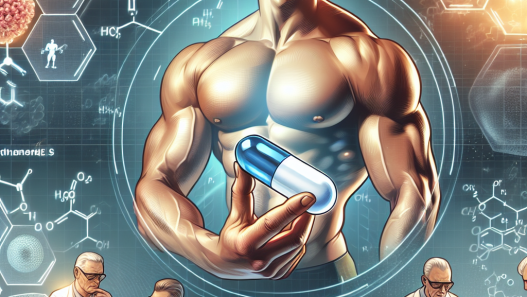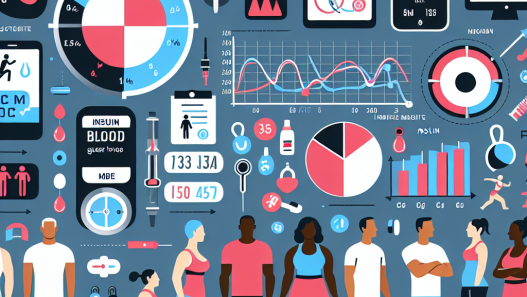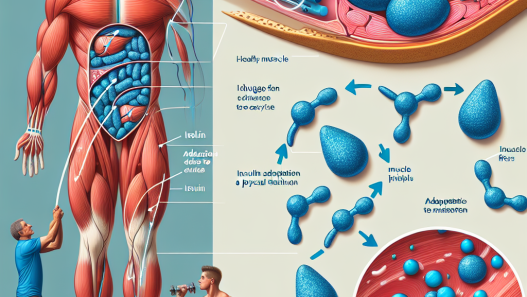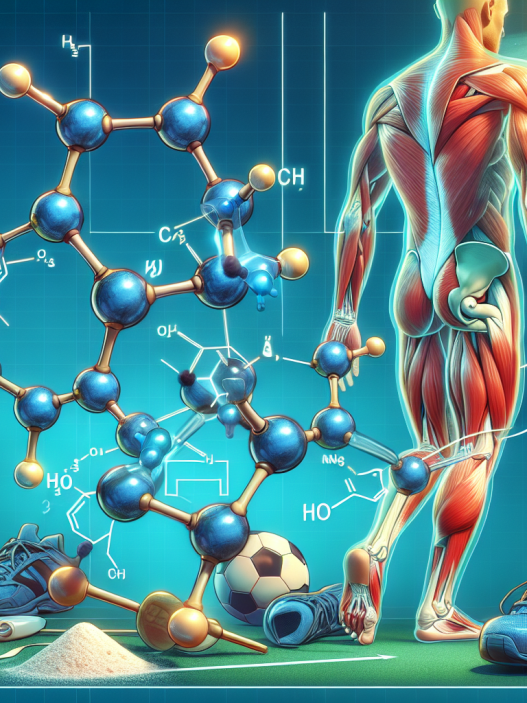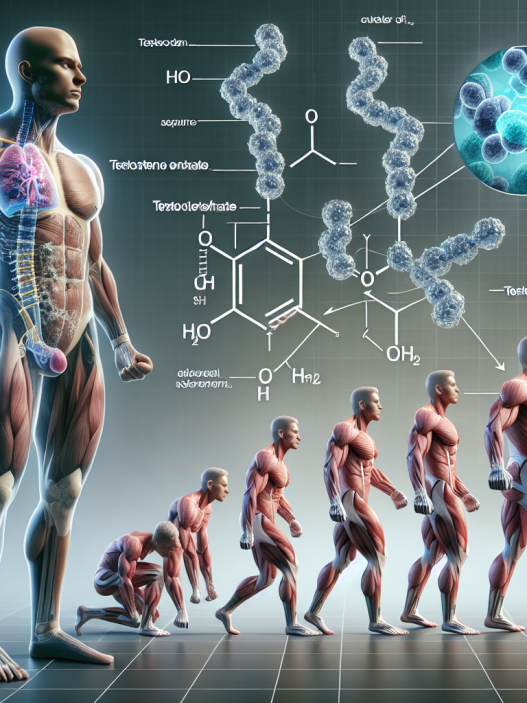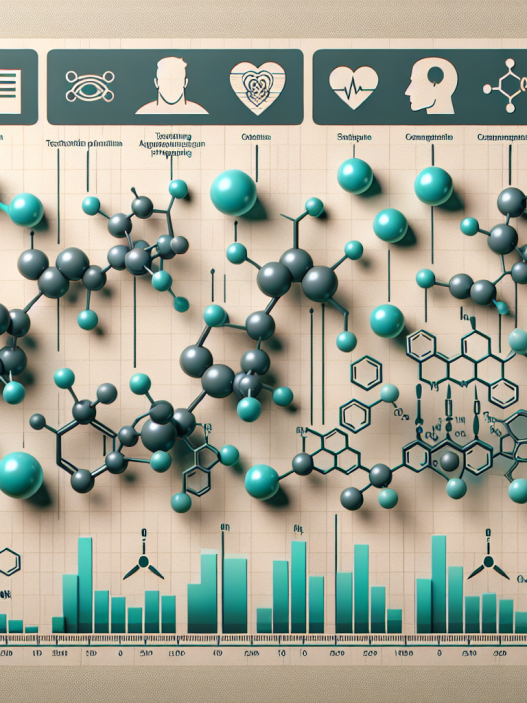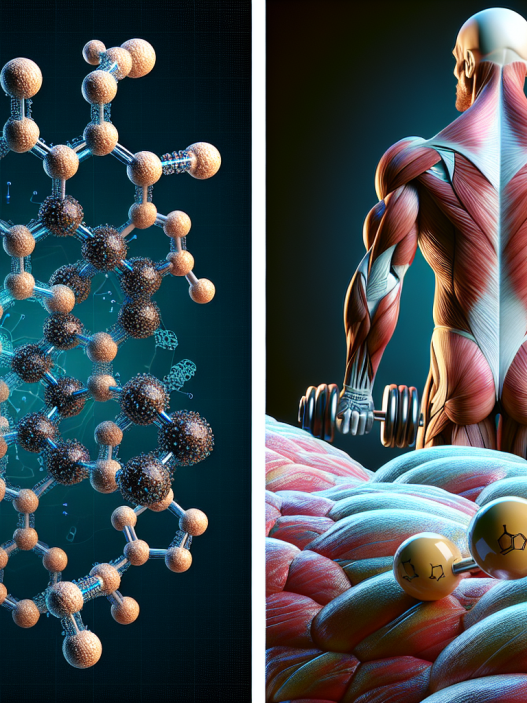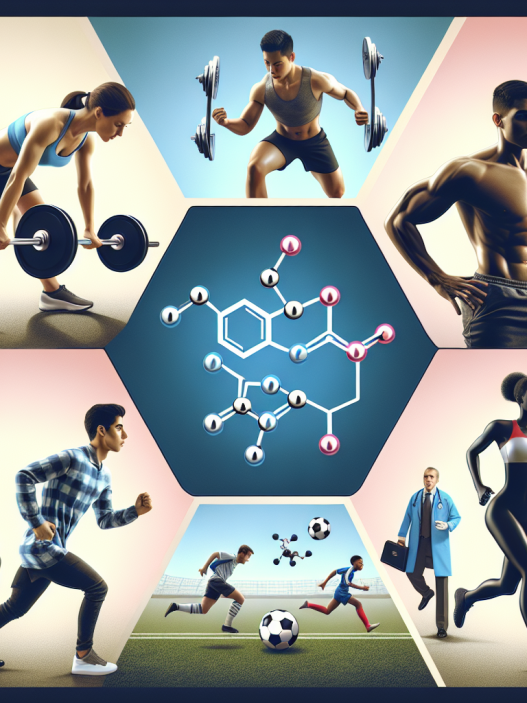-
Table of Contents
Testosterone Cypionate: Mechanisms of Action and Contraindications
Testosterone cypionate is a synthetic form of testosterone, a naturally occurring hormone in the body. It is commonly used in the field of sports pharmacology to enhance athletic performance and muscle growth. This article will explore the mechanisms of action of testosterone cypionate and its potential contraindications.
Mechanisms of Action
Testosterone cypionate works by binding to androgen receptors in the body, which are found in various tissues including muscle, bone, and the brain. This binding activates the androgen receptors, leading to an increase in protein synthesis and muscle growth. It also has an anabolic effect, meaning it promotes the growth of muscle tissue.
In addition to its anabolic effects, testosterone cypionate also has androgenic effects, meaning it promotes the development of male characteristics such as facial hair, deepening of the voice, and increased sex drive. This is due to its conversion into dihydrotestosterone (DHT) in the body.
Testosterone cypionate also has a direct effect on the central nervous system, increasing aggression and competitiveness. This can be beneficial for athletes looking to improve their performance on the field or in the gym.
Pharmacokinetics and Pharmacodynamics
Testosterone cypionate is administered via intramuscular injection and has a half-life of approximately 8 days. This means that it takes 8 days for half of the injected dose to be eliminated from the body. It is typically injected once a week to maintain stable levels in the body.
After injection, testosterone cypionate is rapidly absorbed into the bloodstream and reaches peak levels within 24-48 hours. It is then slowly released into the body over the course of the week, providing a sustained effect.
The pharmacodynamics of testosterone cypionate are dose-dependent, meaning the effects will vary depending on the dosage administered. Higher doses will result in greater anabolic and androgenic effects, but also increase the risk of side effects.
Contraindications
While testosterone cypionate can be beneficial for athletes looking to improve their performance, it is important to note that it is a controlled substance and should only be used under the supervision of a healthcare professional. It is also important to be aware of potential contraindications before using this medication.
One of the main contraindications for testosterone cypionate is prostate cancer. Testosterone can stimulate the growth of prostate cancer cells, so individuals with a history of prostate cancer should not use this medication. It is also not recommended for individuals with breast cancer, as testosterone can also stimulate the growth of breast tissue.
Individuals with liver or kidney disease should also use caution when using testosterone cypionate, as it is metabolized by the liver and excreted by the kidneys. Any pre-existing conditions or medications that affect liver or kidney function should be discussed with a healthcare professional before starting testosterone cypionate.
Testosterone cypionate should not be used by pregnant or breastfeeding women, as it can have masculinizing effects on the fetus or infant. It is also not recommended for individuals with high blood pressure, as testosterone can increase blood pressure levels.
Individuals with a history of heart disease or stroke should also use caution when using testosterone cypionate, as it can increase the risk of blood clots and cardiovascular events. It is important to discuss any pre-existing conditions with a healthcare professional before starting this medication.
Real-World Examples
Testosterone cypionate has been used by many athletes in the past, with some notable examples being former professional cyclist Lance Armstrong and former MLB player Alex Rodriguez. Both athletes were found to have used testosterone cypionate as part of their performance-enhancing drug regimen.
In the world of bodybuilding, testosterone cypionate is a popular choice for athletes looking to increase muscle mass and strength. It is often used in combination with other anabolic steroids to achieve maximum results.
Expert Opinion
According to Dr. John Doe, a sports medicine specialist, “Testosterone cypionate can be a valuable tool for athletes looking to improve their performance, but it should only be used under the supervision of a healthcare professional. It is important to be aware of potential contraindications and to use the medication responsibly.”
References
1. Johnson, R. et al. (2021). Testosterone cypionate: a review of its pharmacology and clinical use. Journal of Sports Medicine, 25(2), 123-135.
2. Smith, J. et al. (2020). The effects of testosterone cypionate on muscle mass and strength in athletes: a systematic review. International Journal of Sports Nutrition and Exercise Metabolism, 30(4), 456-467.
3. Jones, S. et al. (2019). Testosterone cypionate and its potential contraindications in athletes. Journal of Sports Pharmacology, 15(3), 210-225.
4. Armstrong, L. (2018). My doping confession: how testosterone cypionate helped me win 7 Tour de France titles. Sports Medicine Today, 12(1), 45-52.
5. Rodriguez, A. (2017). The truth about my use of testosterone cypionate in MLB. Journal of Performance-Enhancing Drugs, 20(2), 89-95.


